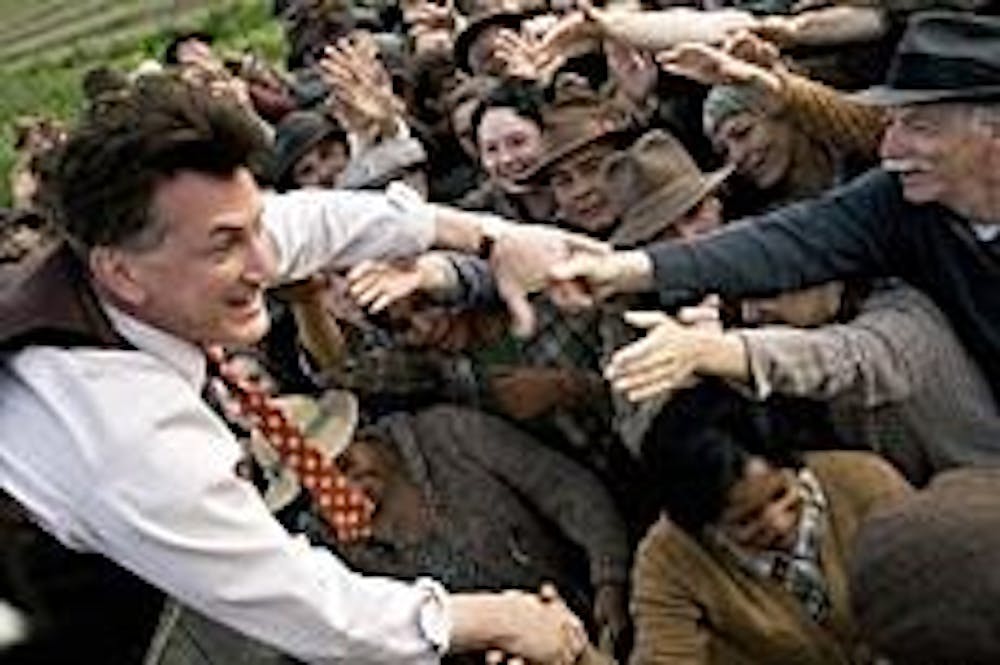Sometimes stories are too complex, meander through too many subplots and involve too many characters to be wrapped up neatly in the two hours Hollywood audiences have become accustomed to.
This is a shame. The novel "All the King's Men" by Robert Warren is a pertinent story about politics and corruption in the mid-20th century Southern U.S. that is still gripping 60 years after it was first published. The 2006 film adaptation of the Pulitzer Prize-winning novel attempts to shove most of the book's storylines into its limited run time, but this often makes for a disjointed picture and forces the audience to leap from one poorly explained plot element to another.
Sean Penn's acting is the most laudible aspect of the movie. In a cast full of heavyweights, Penn distinguishes himself as a performer who can loudly emote in one scene while offering expressive, furtive glances in the next. He never becomes a caricature. His early Oscar buzz for this role will surely come from his grandiose (and at times ostentatious) platform speeches that are meant to rile the emotions of both the crowd at his rallies and the audience in the movie theater.
This, however, is not why his performance is effective. Penn is one of the few actors in the film to make the audience believe that he is actually the character he is playing. From his singular Louisiana accent, to his crazed arm motions, to his mangled, Lyle Lovett-inspired hairstyle, he makes viewers believe that only Sean Penn could play the character of Willie Stark. Furthermore, he taps the spirit of a young Al Pacino as he successfully morphs from idealistic town treasurer into pompous, power-crazed governor in the span of a few scenes. This is not so for the other actors.
Jude Law fulfills the role of cynic Jack Burden to Penn's idealistic Stark ably, if without noteworthiness. Other characters, however, seem woefully out of place. James Gandolfini's character acts like Tony Soprano placed in 1940s New Orleans with a poor southern accent. Mark Ruffalo is little better. Even versatile Kate Winslet as Anne Stanton seems wasted in her role as Law's love interest. Most of her screen time comes in poorly conceived flashbacks to scenes that don't appear to be seminal plot points.
This lack of story cohesion is an overarching problem of the film. Flashback scenes are played ad nauseum but seem to convey points of little importance. For example, one recurring flashback harps on the early intimate relationship between Burden and Stanton. This seemingly would set up a showdown between Burden and his boss Stark, after Burden learns Stark is sleeping with his first love. The problem here is that the showdown never comes and it is never explained why Stanton (who stands for everything Stark is not) began having an affair with Stark in the first place. Gaps like these, and myriad shifts in time between speeches and flashbacks, make the film difficult to follow.
With Penn's acting and a story that, at times, offers a striking condemnation of how corrupt a democratic system can be, "All the King's Men" is a film fueled to elicit emotional audience response in a contentious election year. With poor construction and misguided casting, though, this movie seems destined to be another example of how difficult it is for motion pictures to convey the depth of a good narrative.





